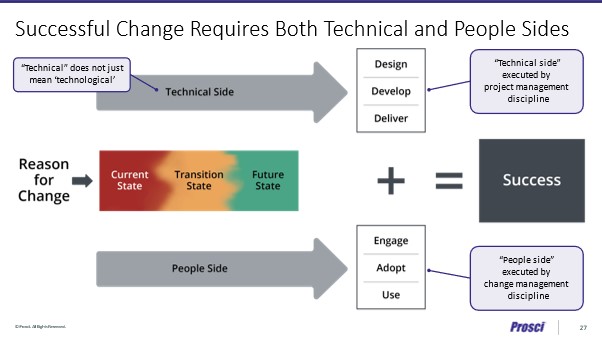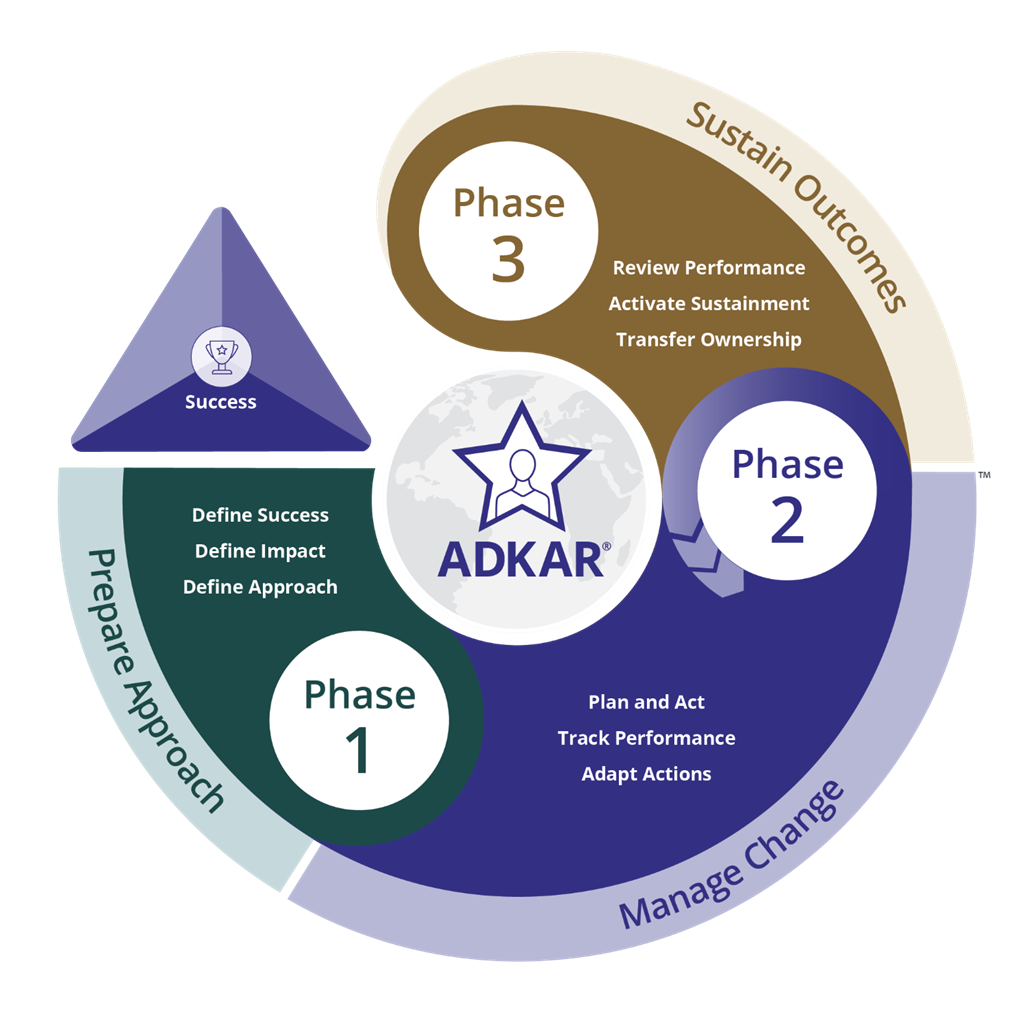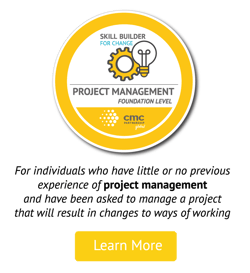Introduction
As a Prosci certified advanced instructor I often get this question during our Prosci Change Management Certification Program 'can a project manager and a change manager be the same person?'
My answer is always the same, YES, but...it depends! It depends on whether the project manager has the competency of change management and also the capacity to do both change management and project management. This blog will focus on one of these elements of competency and discuss why project management is important for change.
In this block we will make the case for change management and project management through two concepts:
- The Prosci Unified Value Proposition
- The Prosci Methodology
Project Management and Change Management Competency
According to the Prosci methodology, 'Project management and change management are complementary disciplines with a shared objective'. They both aim to increase the likelihood that projects or change initiatives deliver the intended results and outcomes. Although each discipline functions independently, the most effective approach is to integrate change management and project management to create a unified approach on both the technical side and the people side of change. We refer to this as the unified value proposition. Both need to be in place for project success.

Phase 2: Manage Change
In the diagram below you can see the graphical representation of the Prosci methodology. In Phase 2 - Manage Change of the Prosci Methodology there are three stages:
- Plan and Act
- Track Performance
- Adapt Actions

In the Plan and Act phase the Change Manager needs to document their ADKAR blueprint and change management plans. I often have to remind people that you need to 'plan the work and work the plan'. From a Change Management perspective, you end up with a set of activities and roles which dictate who need to perform those activities along with a start date and end date for each of those activities. The PMBOK defines project management as "Project management is the application of knowledge, skills, tools and techniques to project activities to meet the project requirements."
It is essential that we understand that both change management and project management work towards the same project objectives and outcomes. The only difference is the activities that each discipline undertakes to achieve those objectives.
From this we can see that you need to follow Project Management principles to complete your Change Management activities in phase 2 - manage change. This would include following a structured governance approach and comprises of the following components:
- Status Reports
- Risk logs
- Decision logs
- Minutes of meetings
- Attendees at meetings
- Decision taken
- Budget tracking
- Performance tracking
- Team meetings
How do you do it?
According to Prosci research, for you to achieve the above outcomes, Prosci suggests kicking it off with the following three steps:
- Assign a dedicated change management resource
- Map ADKAR elements over project plan
- Change management deliverables were required
Assign a dedicated change management resource
A number of participants reported having a dedicated change management resource on all large-scale/high-impact projects. For some participants the change manager was an outside resource brought onto the project team for that project only; for others the resource was internal as part of the project teams.
Map ADKAR elements over project plan
Participants reported that mapping the ADKAR elements over the project plan ensured that the project team addressed each element in a timely manner, and that achieving each ADKAR milestone was planned and resourced.
Change Management deliverables were required
Participants reported that the change management deliverables were included in project deliverables as well. The specific requirements varied by organisation and by project, but many participants reported that the project team had to ensure that projects were delivered with built-in change management deliverables.
Conclusion
CMC Participants Global has realised that it is not necessary for Change Management practitioners to become fully certified as a project manager to fulfil the basic requirements as a project manager. We have designed a Skill Builder for Change and it is all about Project Management. It's a one-day workshop where we'll transfer to you our knowledge about project management key practices and introduce the standard project management concepts, terms and tools.
Get in touch for a conversation around how we can support you and meet your needs whether you are the manager of a project or working with a team.



